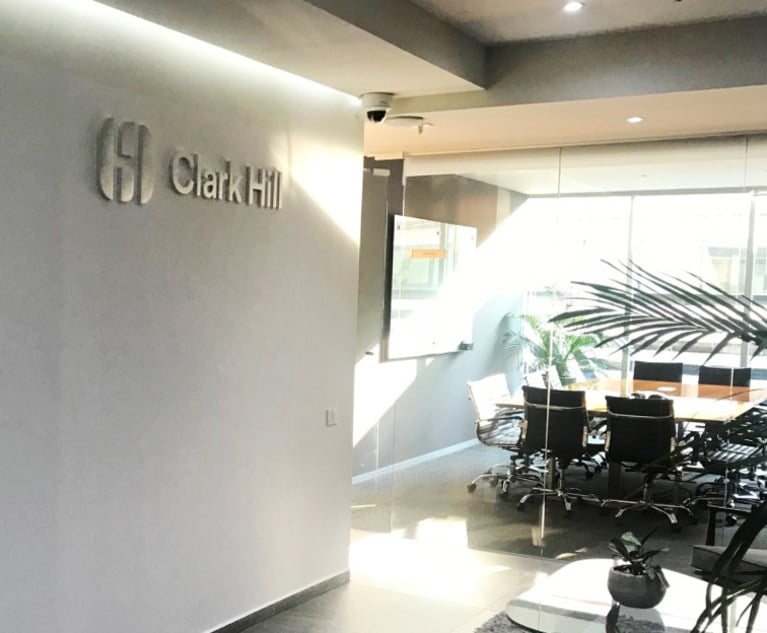 Photo: Cameron Watson/Shutterstock.com
Photo: Cameron Watson/Shutterstock.comTexas Attorney Ernest Cannon Is Suing His Estate-Planning Lawyer Over His Ranch's $8.78 Million Loss
Legendary Texas trial lawyer Ernest Cannon has sued his estate planning lawyer and firm, alleging their mistake in setting up a trust for his son cost him $8.78 million.
May 15, 2020 at 10:11 AM
4 minute read
Ernest Cannon is a legal legend from Texas' golden age of big jury verdicts and larger-than-life plaintiffs attorneys.
He's also a longtime rancher.
But maybe he's a better lawyer than he is a rancher: His ranching operation lost $8.78 million over seven years, according to a new legal malpractice lawsuit he filed Wednesday.
Cannon has a beef with his estate-planning attorney, Cracy Jewett McCulley & Houren partner Jay Houren of Houston, Houren's firm, plus two accountants and an accounting firm. He alleges they made a mistake in his estate plan that caused an $8.78 million ranching operation loss to come out of a trust he had established for his son.
|Trust fund drained?
Cannon, a Stephenville solo practitioner who didn't return a call seeking comment, was a law partner of legendary Houston litigator John O'Quinn. He represented O'Quinn in multiple legal tassels, like disciplinary charges by the State Bar of Texas and legal-fee fights over O'Quinn's Big Tobacco settlement.
Cannon has represented Art Briles, the former Baylor University head football coach who was terminated during the university's sexual assault scandal. He was involved in litigation against BP over the Deepwater Horizon disaster.
He hired Houren and accountants Gary Sult and Elizabeth Ann Minze in 2011 to set up his son's trust, according to the petition in Cannon v. Crady Jewett McCulley & Houren, filed in Madison County's 278th District Court.
Accountant Minze declined to comment, and Sult didn't return a call or email seeking comment before deadline. Houran, the attorney-turned-defendant, also didn't return a call or email seeking comment before deadline.
Cannon alleged Houran and the accountants set up an estate plan that structured the trust to own a principal asset of a 96% limited partnership in J Bar F Investments Ltd., which was supposedly worth millions of dollars.
J Bar F held a portfolio of securities and controlled affiliated companies in Cannon's ranching operations, the complaint said.
One of those affiliated entities was the operating company of the ranching properties and equipment. It was losing money, and JBarF would cover for it, to the tune of $8.78 million from 2013 to 2018, alleged the petition.
"This financial situation was inadequately brought to the attention of the trustees by its lawyers and accountants … even thought its lawyers provided legal advice, and its accountants handled the fiscal oversight of all related operations," the petition alleged.
The plaintiffs—Cannon and three others who are all trustees of the son's trust—alleged it was professional negligence to include the ranching operations company in the trust. Plaintiffs counsel, Kelly Hart & Hallman partner Marshall M. Searcy Jr. of Fort Worth, declined to comment.
The petition claimed the trust was supposed to accumulate cash for the son's future needs, but the opposite occurred. It claimed Cannon regularly made gifts to the trust, paid a gift tax and relied on the defendants' legal and accounting advice to guide financial decisions for the trust.
Cannon's filing said he discovered the trust's financial predicament in 2018. It claimed Houren told him that if he wanted to maximize the trust's assets, then Cannon himself should directly own and fund the ranching operation company. It said Cannon bought the company for $8.78 million in 2019, to restore the funds the company had siphoned from the trust.
"EHC never should have been part of the trust—a matter that Cannon did not and could not have known during the 2012 estate plan restructure," the petition claimed.
If the defendants had properly advised him from the beginning, then J Bar F would never have owned the operations company, and Cannon wouldn't have had to buy the company, the lawsuit claimed.
"The trust's assets were imprudently concentrated in its ownership in JBarF," the petition said. "The trust lost the use of approximately $8.78 million over the course of seven years, depriving it of earnings it otherwise would have achieved."
|
Read the lawsuit:
This content has been archived. It is available through our partners, LexisNexis® and Bloomberg Law.
To view this content, please continue to their sites.
Not a Lexis Subscriber?
Subscribe Now
Not a Bloomberg Law Subscriber?
Subscribe Now
NOT FOR REPRINT
© 2025 ALM Global, LLC, All Rights Reserved. Request academic re-use from www.copyright.com. All other uses, submit a request to [email protected]. For more information visit Asset & Logo Licensing.
You Might Like
View All

Legal Malpractice: Texas Supreme Court OKs 'Pernicious Distortion of Positions'
4 minute read
Ex-Six Flags CLO Lands New C-Suite Post—This Time as HR Chief

Law Firms Mentioned
Trending Stories
- 1Splits Among the Departments: What Might Be Ripe for the Court of Appeals
- 2Recent Developments Section 1782 Litigation and the Attorney-Client Privilege
- 3Biden's Lower Federal Court Bench Legacy
- 4Legal Finance at 15: Research Reveals What’s Fueling Growth and What’s Next
- 5New Part 160 and Presumptive ADR
Who Got The Work
Michael G. Bongiorno, Andrew Scott Dulberg and Elizabeth E. Driscoll from Wilmer Cutler Pickering Hale and Dorr have stepped in to represent Symbotic Inc., an A.I.-enabled technology platform that focuses on increasing supply chain efficiency, and other defendants in a pending shareholder derivative lawsuit. The case, filed Oct. 2 in Massachusetts District Court by the Brown Law Firm on behalf of Stephen Austen, accuses certain officers and directors of misleading investors in regard to Symbotic's potential for margin growth by failing to disclose that the company was not equipped to timely deploy its systems or manage expenses through project delays. The case, assigned to U.S. District Judge Nathaniel M. Gorton, is 1:24-cv-12522, Austen v. Cohen et al.
Who Got The Work
Edmund Polubinski and Marie Killmond of Davis Polk & Wardwell have entered appearances for data platform software development company MongoDB and other defendants in a pending shareholder derivative lawsuit. The action, filed Oct. 7 in New York Southern District Court by the Brown Law Firm, accuses the company's directors and/or officers of falsely expressing confidence in the company’s restructuring of its sales incentive plan and downplaying the severity of decreases in its upfront commitments. The case is 1:24-cv-07594, Roy v. Ittycheria et al.
Who Got The Work
Amy O. Bruchs and Kurt F. Ellison of Michael Best & Friedrich have entered appearances for Epic Systems Corp. in a pending employment discrimination lawsuit. The suit was filed Sept. 7 in Wisconsin Western District Court by Levine Eisberner LLC and Siri & Glimstad on behalf of a project manager who claims that he was wrongfully terminated after applying for a religious exemption to the defendant's COVID-19 vaccine mandate. The case, assigned to U.S. Magistrate Judge Anita Marie Boor, is 3:24-cv-00630, Secker, Nathan v. Epic Systems Corporation.
Who Got The Work
David X. Sullivan, Thomas J. Finn and Gregory A. Hall from McCarter & English have entered appearances for Sunrun Installation Services in a pending civil rights lawsuit. The complaint was filed Sept. 4 in Connecticut District Court by attorney Robert M. Berke on behalf of former employee George Edward Steins, who was arrested and charged with employing an unregistered home improvement salesperson. The complaint alleges that had Sunrun informed the Connecticut Department of Consumer Protection that the plaintiff's employment had ended in 2017 and that he no longer held Sunrun's home improvement contractor license, he would not have been hit with charges, which were dismissed in May 2024. The case, assigned to U.S. District Judge Jeffrey A. Meyer, is 3:24-cv-01423, Steins v. Sunrun, Inc. et al.
Who Got The Work
Greenberg Traurig shareholder Joshua L. Raskin has entered an appearance for boohoo.com UK Ltd. in a pending patent infringement lawsuit. The suit, filed Sept. 3 in Texas Eastern District Court by Rozier Hardt McDonough on behalf of Alto Dynamics, asserts five patents related to an online shopping platform. The case, assigned to U.S. District Judge Rodney Gilstrap, is 2:24-cv-00719, Alto Dynamics, LLC v. boohoo.com UK Limited.
Featured Firms
Law Offices of Gary Martin Hays & Associates, P.C.
(470) 294-1674
Law Offices of Mark E. Salomone
(857) 444-6468
Smith & Hassler
(713) 739-1250






